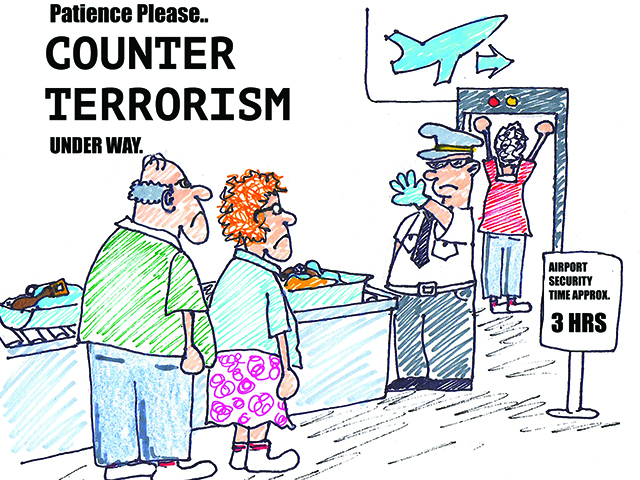
An overwhelmingly uncrowded lecture hall on an overcast afternoon, is the location for the deceptively explosive talk by Dr Claire Hamilton of NUI Maynooth on Counter Terrorism in Europe.
As a stream of students pool in and out of Glasnevin library at a speed indicating the semester is drawing to a close, Dr Hamilton delivers.
There is no doubt that there has been a re-emergence of far right political ideals in the modern world; the election of Donald Trump, triggering of Article 50, and the rise in popularity of the National Front in France. This trend can be seen across the world, however, it does not exist in a vacuum. From 9/11 onward, the lengths to which politicians and political parties opportunistically use terror attacks to implement stringent, near totalitarian laws, is apparent no just in the United States but across the European Union and particularly in France.
These legal actions are the focus of Dr Hamilton’s latest research, conducted alongside Dr Gulia Berlusconi, entitled “Contagion, Criminology, and Counter-terrorism”. While stipulating all research was preliminary, she did not shy away from heavily coded and biased language. Her usage of the metaphor of contagion in describing these strict laws- and in the case of the European Arrest Warrant – alarmingly in violation of human rights as stipulated by the European Union itself, show her staunch opposition to this trend in so-called “counter-terrorism” law making.
The European Arrest Warrant is valid throughout all member states of the EU, when issued it requires one member state to transfer a criminal suspect to the state who issued the warrant to put them on trial or carry out a detention period. This occurred post 9/11 as a counter-terrorist measure, but quickly became applicable to many ordinary crimes.
A State of Emergency was called in France in the aftermath of the 2015 Paris attacks; now extended four times. Over 4000 home searches have been carried out in France in the name of counter-terrorism, however, only 28 of these were terrorism related, the majority being drugs-related offenses. Of these 4000 searches, only 6 counter-terrorism cases have been opened. The French government has been opportunistically using terrorist attacks to bring in harsher laws and harsher policing. Terrorism is grouped with organised crime in France and organised crime can be defined as two or more people committing petty theft.
According to Dr. Hamilton: “This is a steady accretion of views which has gone largely unchallenged in France”.
While talk of contagion goes on, one question remains, how do we go about removing the infection without collapsing the structures in which it has spread? In France these measures began in 1986 and are insidious in the day-to-day life of French people.
The only answer offered, is that going forward “prevention is cure.”
Aoife Horan
Contributor
